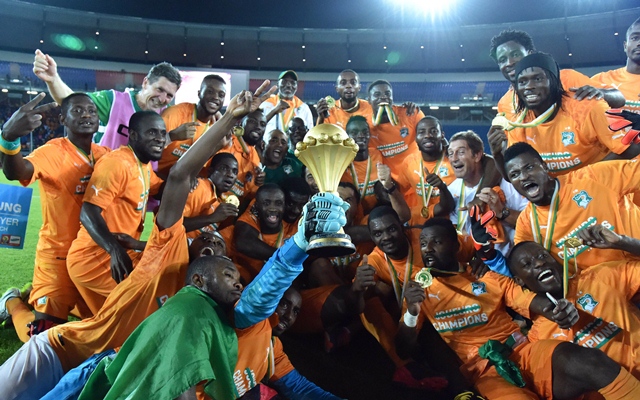
Pictures of a jagged broken mirror used as a missile by a rioter and players attempting to assault a referee in another knockout match involving the host nation were beamed around the world on television.
The incidents did nothing to enhance the reputation of football on the continent, although African Football Confederation (CAF) President Issa Hayatou saw things differently.
Taking exception to the international media coverage, he insisted the western press was ‘perpetuating colonisation’ as similar events occurred in Europe without as much uproar.
"When something bad happens in Europe, they say it's an error. When something happens in Africa, they begin talking about corruption," said Hayatou. "The western media are simply here to perpetuate colonisation."
The controversy around the 2015 Cup of Nations began when original hosts Morocco were stripped of the right to stage Africa's football showpiece after raising concerns over the spread of the deadly Ebola epidemic. They have been barred from both the 2017 and 2019 Cup of Nations tournaments.
This left late replacements Equatorial Guinea with just two months to prepare for the 16-nation tournament.
"We had only 50 days to prepare for this tournament. We worked very hard, day and night, to ensure the competition was played in Africa and not outside," said proud organising committee chairman Francisco Pascual Obama Asue.
"This must be a source of pride for us and the whole of Africa."
The football on offer showed a great deal of European influence with tighter defences and more tactical awareness, and this was expected because only three of the teams were led by African coaches.
In the absence of defending champions Nigeria and record seven-time winners Egypt, experts predicted a very open tournament, but in the end two of Africa's powerhouses – the Ivory Coast and Ghana – clashed in a decider than went to penalties before the Ivorians emerged 9-8 winners.
Like Sports on Facebook, follow @ETribuneSports on Twitter to stay informed and join in the conversation.

1721377568-0/BeFunky-collage-(18)1721377568-0-165x106.webp)



1732618303-0/Express-Tribune-(6)1732618303-0-270x192.webp)
1732608486-0/BeFunk_§_]__-(54)1732608486-0.jpg)










COMMENTS
Comments are moderated and generally will be posted if they are on-topic and not abusive.
For more information, please see our Comments FAQ